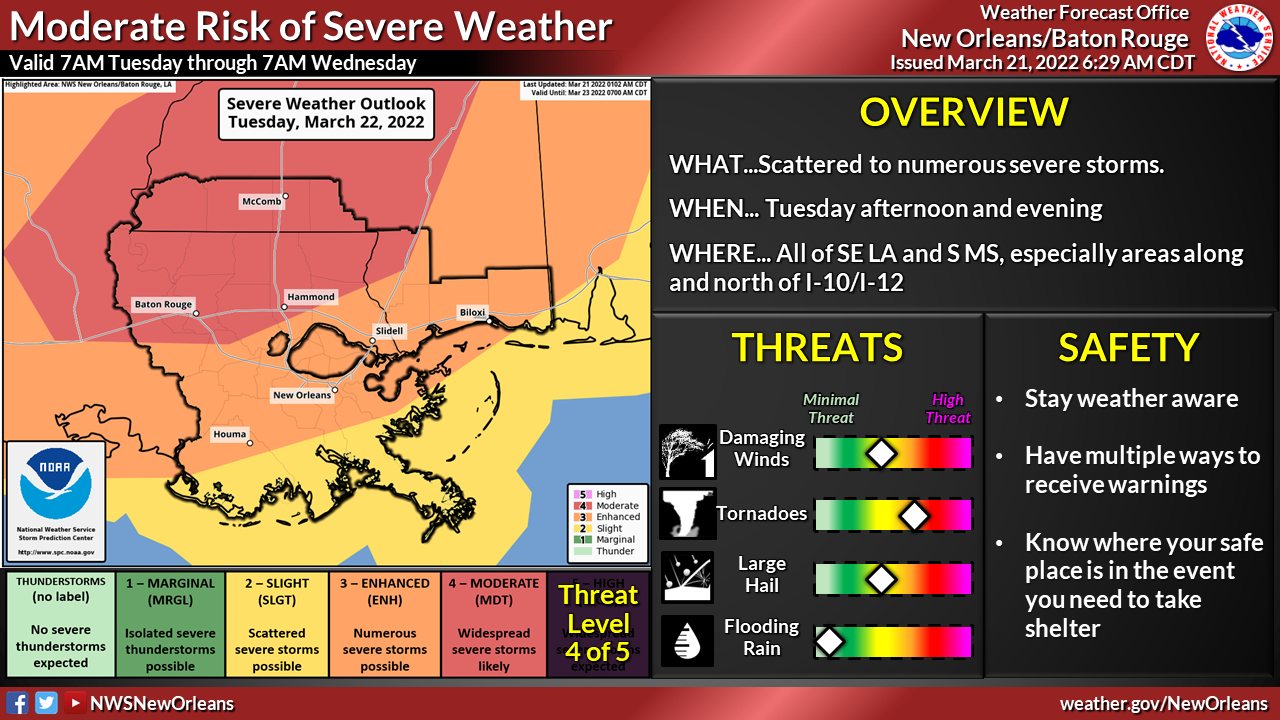
Weather Alert: Severe weather possible tomorrow, including risk for tornado
March 21, 2022
15-Year-Old Struck in Drive-by Shooting, TPSO Asks for Public Help
March 21, 2022Last week, the U.S. Senate unanimously passed the Sunshine Protection Act which will permanently extend Daylight Savings Time from eight months to year-round.
The act was first introduced in January 2021 by Florida Republican U.S. Senator Marco Rubio along with seven other bipartisan members of Congress. Senator Rubio said there is a distraction that comes with the ritual of changing the clock back and forth and one has to ask themselves why do we keep doing it?
Although the Senate has passed the act, it still has to clear the U.S. House of Representatives which would then move it forward to be signed by President Joe Biden. If the President signs it into law, Louisiana will automatically apply permanent daylight savings time due to a bill passed by Haughton Republican State Representative Dodie Horton in 2020. She said she believes the extended daylight hours will boost people’s moods and provides other benefits.
Dr. Joanne Skaggs of OU Health said in an interview that there are positive and negative effects with the change if it becomes a law. She said shifting times disrupt the circadian rhythm and she notices her office gets busier around a time change, “In the medical world, we find that that’s actually associated with increased cardiovascular risk so there’s an increased risk of heart attack stroke you’re more likely to be admitted to the hospital and you’re more likely to visit the emergency room,” Dr. Skaggs said.
The Sunshine Protection Act will not alter or change time zones if passed. It will not change the number of hours of sunlight or mandate those who do not currently observe daylight savings time which are American Samoa, most of Arizona, Guam, Hawaii, Northern Mariana Islands, Puerto Rico, and the Virgin Islands.
Daylight Savings Time was enacted during wartime following Germany’s 1916 effort to conserve fuel during World War I. It was implemented for seven months in the interest of adding more daylight hours. It was since extended and now lasts for eight months and standard time only lasts four months out of the year. An interesting fact is that in 1942-1945 and 1974-1975, the United States observed Daylight Savings Time year-round.
If the act becomes law while Daylight Savings Time is being observed, Louisiana will not see another standard time. If it is passed while standard time is being observed, the new law would become in effect at 2:00 a.m. on the second Sunday in March.






